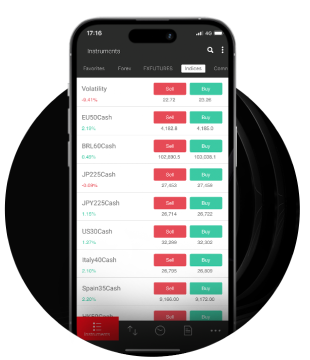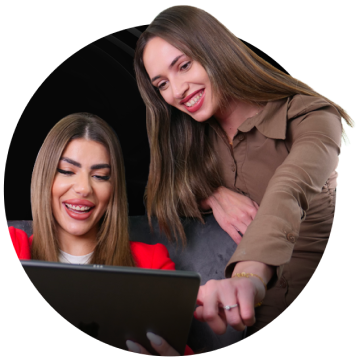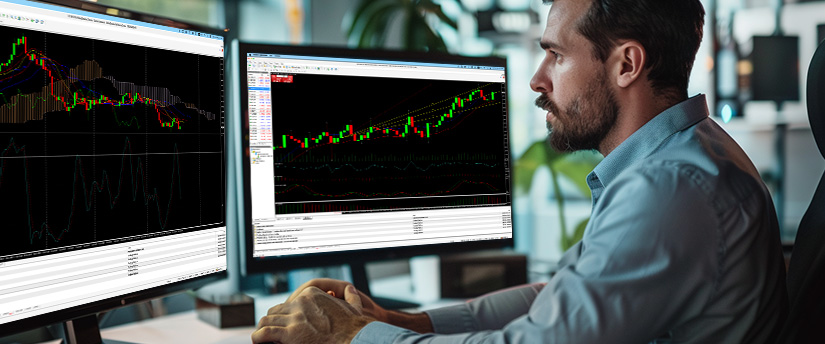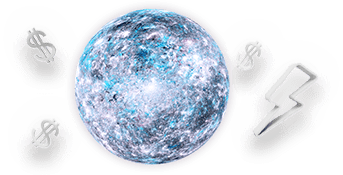If you are a new trader and want to start learning forex, you have probably wondered whether to teach yourself though thorough self-study or to enrol in professional trading courses. However, there is no right or wrong answer. Whichever path you choose, it will depend on your trading goals, the way you like to learn and preferred schedule.
In this article, we will go through both learning paths, analysing both their strengths and weaknesses or how you can combine both for the maximum learning potential.
Is education important in forex?
Forex trading is not just about speculating on prices’ movements. It’s a fast-moving market that requires proper knowledge. So, you will definitely need a basic knowledge of how charts work, how important leverage is in terms of how it impacts trades and how to protect your capital by using risk management tools like stop-loss orders. All these are usually mandatory and very important in building a structured and consistently effective trading approach.
Also, forex is traded 24/5 all around the globe making it an extremely flexible and accessible market that provides opportunities. It also brings risks as well though, due to volatility and high leverage. Therefore, careful education is needed to be able to trade currencies especially since leverage can boost both profits and losses.

What are structured trading courses and what do they include?
Structured trading courses online are usually designed and operated by trading professionals or institutions. These courses usually include technical analysis factors like patterns and indicators, trading psychology including emotions and discipline, risk management fundamentals and simulated or live trading demo.
Most of the time, the content is organised, guiding you from basics to more advanced strategies in a step-by-step format.
How can taking a course be helpful?
Expert guidance
Traders get to learn directly from traders with years of trading experience in the industry. Professional courses give you verified information and structured feedback.
Fast learning opportunity
Since the curriculum is structured, traders can avoid making mistakes most often made by beginners since courses take you through all the important information in the right order.
信頼性
Assessments, quizzes or deadlines are usually found in many courses, helping you stay focused and consistent with your learning objectives.
High-quality resources
Courses are usually carefully designed with ready-made materials including helpful tools, research material and simulated trading environments so that you do not need to search for resources randomly and on your own.
On the negative side, courses be quite costly and time consuming. You be required to follow a certain schedule, which can overlap with other responsibilities. You might also need to learn topics you are not interested in just so you complete the course. Like with any other industry, you should be careful to choose a fair and reliable instructor.
What is self-study and how can learning on your own be helpful?
When you choose to learn forex on your own, it means you are in control of everything. Your learning will include free resources like blogs, YouTube or forums, books or eBooks, demo trading accounts, community and group discussions.
Flexible hours
With self-study, you decide when and what to study making it perfect if you are committed to another job or have other responsibilities
Free or cost-effective
There are many high-quality resources with low or no cost making it a rather cheap learning path.
Independent learning
You can learn to research, verify and think strategically and critically, factors that are necessary in longer-term trading.
Tailored & personalised
You can avoid topics you are not interested in like exotic currency pairs for example. You can focus on what matter to you the most based on your preferences.
However, there are always some weaknesses when it comes to self-learning. For instance, the pace is slower. Without a mentor, it might take longer to learn from your mistakes.

There is also more space for mistakes, and you might find yourself repeating the same errors that experienced traders would have pointed out. Also, there is a lot of information online and not all of it is helpful. You will need to be extremely disciplined as it is easy to lose motivation when learning on your own.
Self-learning or trading courses?
With the rapid growth of technology, information is readily available and very easy to access. However, without professional mentorship, you learning will heavily depend on practising, testing, reviewing and adjusting. Therefore, self-studying is possible with patience and willingness to accept mistakes and learn from them.
On the other side of the coin, while learning on your own allows for flexible and cheap learning process, there is always a high risk of coming across with low-quality or unreliable sources. As a result, it seems like combining self-study with structured trading courses is sometimes the smartest path to take.
Combining trading courses with self-study
As mentioned above many traders that want to learn forex do not just use one method, but a blend of both. You could start with a course to build a strong foundation with the most important things around forex, specifically key tical topics like risk management or trading psychology. You should then add self-study by reading books, maybe participating in forums and learning at your own pace.
The next step could be to start practising on a demo account while trading strategies learned from your course. You could always keep a trading journal, tracking each trade’s performance and thoughts behind it as well as how you felt. This kind of review helps you improve your trading strategy. You can gradually move to live trading when you feel more confident.
How to evaluate courses ?
When you are about to enrol to a trading course, there are some key factors to consider.
- Reliability of instructor – ensure that they have real experience in the industry.
- Real targets and expectations – do not believe the idea of “getting rich fast” as generating revenue needs time and patience.
- Easy-to-understand content – courses should cover topics like strategies, risk, trading psychology and more.
- Intuitive format – recorded videos, live sessions or other helpful things.
- Availability of feedback and support – check whether there is always available support to answer any of your questions.

結論
There isn’t one right answer to the question of whether to learn on your own or choose to learn via trading courses. It all depends on your trading goals and learning style.
Trading courses usually provide structured guidance and expert insights, whereas learning on your own is more flexible, cheaper and personalised. Many traders usually enjoy a more balanced approach where they combine both learning methods.
Whichever way you go, you should always practise on a demo account to test strategies, keep a trading journal to review mistakes, and manage risk carefully. In the end, what matters is that you are always consistent, disciplined and patient. Also, keep in mind that many online brokers include IronFX usually offer a wide variety of educational resources and trading courses through IronFX Academy, to support both self-study and structured learning.
免責事項: 本情報は、投資助言や投資推奨ではなく、マーケティングの一環として提供されています。IronFXは、ここで参照またはリンクされている第三者によって提供されたいかなるデータまたは情報に対しても責任を負いません。
















